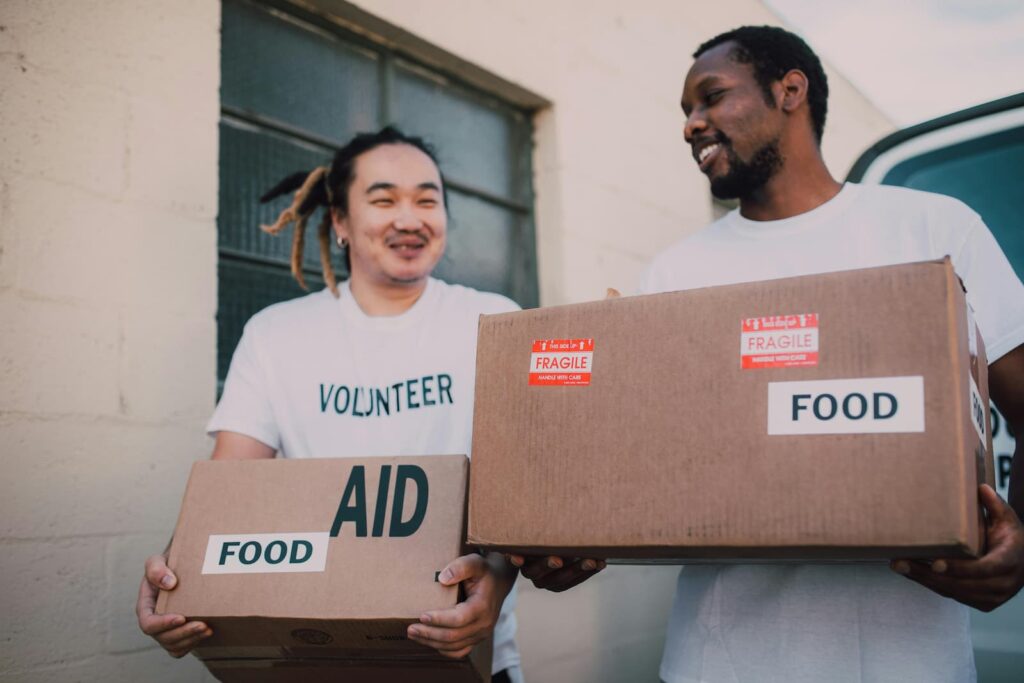
How to Use "Help" Like a Native Speaker

"Help" is a basic but important word most English students learn early in their studies.
But aside from its basic meaning, it has other uses, and it also appears in idioms that are common in daily communication. This article will take a brief look at some of them along with useful example sentences.
Different Meanings and Uses of “Help”
As a Verb

"Help" as a verb means "to assist."
Can you help me move this sofa?
I wish I could help, but I'm busy at the moment.
It also means "to improve" a situation or state.
I have a bad cold, but this medicine helps.
When you're nervous, taking a few deep breaths can help you to relax.
As a Noun
"Help" as a noun refers to assistance.
Thanks for your help; I couldn't have done it without you.
He thanked his family for their help and encouragement.
Although "help" is uncountable, people sometimes say "a big help" when speaking casually.
Jenny's suggestion was a big help. It would've taken much longer to find the solution without it.
Related article: How to Use Countable and Uncountable Nouns
Related Words and Expressions
Helpless
Someone who's helpless cannot protect or take care of themselves, and must rely on others for support.
I felt helpless when I first moved overseas, but I slowly became more confident and capable.
Our rivals will be helpless against our newest strategy!
Helpful
Something or someone that is helpful offers good assistance.
His advice was very helpful in my decision-making process.
Your negative attitude isn't very helpful.
Helping

This noun refers to a portion of food. Every time you add more food to your plate — or get a new plate of food — you're getting another "helping" of it.
We ate so much at the Thanksgiving buffet — I had seven helpings of turkey and stuffing!
Help out
"Help out" is a casual phrasal verb that has the same meaning as the basic verb "help."
Preparing for the event will require a lot of work, so I called a few friends to help out.
Related article: New to Phrasal Verbs? Start Here!
Help desk
As you might guess, a help desk is where you can find staff members to assist you in places like office buildings and department stores.
You must be friendly and patient to work at the help desk.
The help
"The help" refers to people like waiters and cleaners who work to make sure others are comfortable or are having a good time.
Be careful: This term is generally only used by people who are stuck up.
I'll have the help take care of this for you.
“Help yourself”
When you're hosting a guest, use this phrase to tell someone to freely enjoy something you've provided for them. It's often used for food, but it can refer to other things too, depending on the situation.
Lend a (helping) hand

Like "help out," this idiom is simply a casual way to say "help" or "offer assistance."
If you need help painting your kitchen, I can lend you a hand.
Once a month, Kate likes to lend a helping hand at the homeless shelter downtown.
Can’t help oneself
If you "can't help yourself" from doing something, it means you can't stop yourself from doing it. In other words, you do it even though you know you shouldn't!
I should be saving more money, but I bought a new video game today anyway. I just couldn't help myself!
Wrap-up
"Help" is just one example of a simple word that has more meanings if you look closer.
Once you've mastered using the basic root word, take a look in your dictionary to see all of the related vocabulary you can find. Then, try them out in your next conversation with English-speaking friends or with a tutor!



